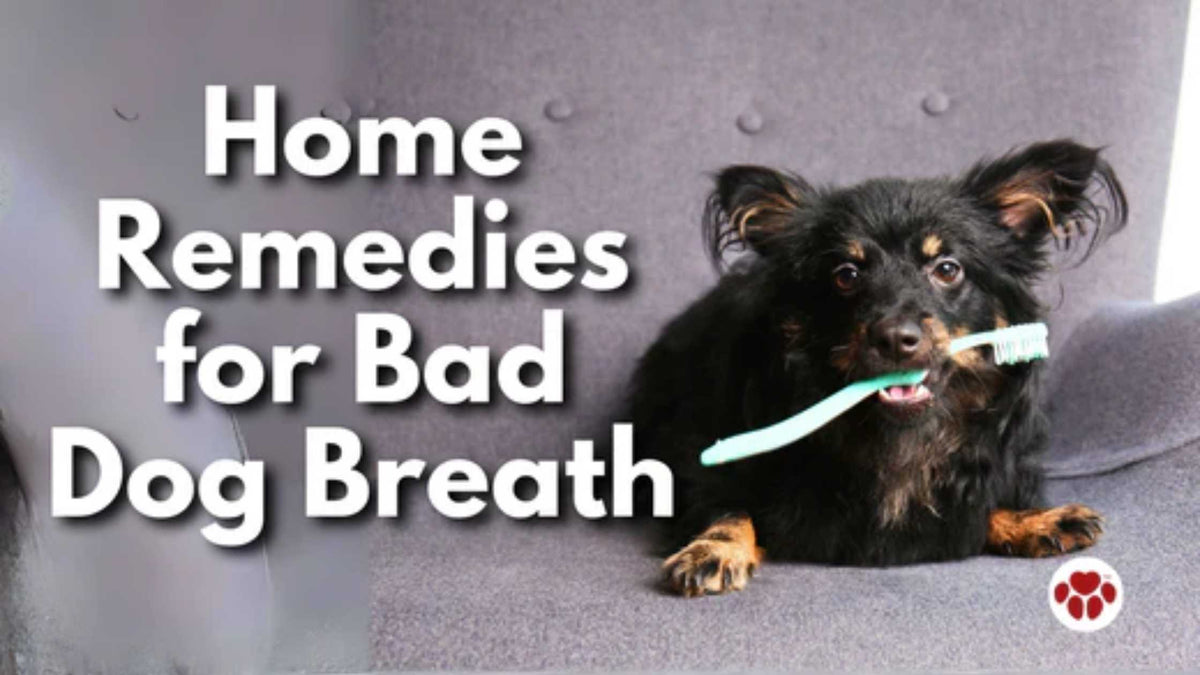
Home Remedies for Bad Dog Breath
|
|
Time to read 9 min
|
|
Time to read 9 min
In this article we will explore the following:
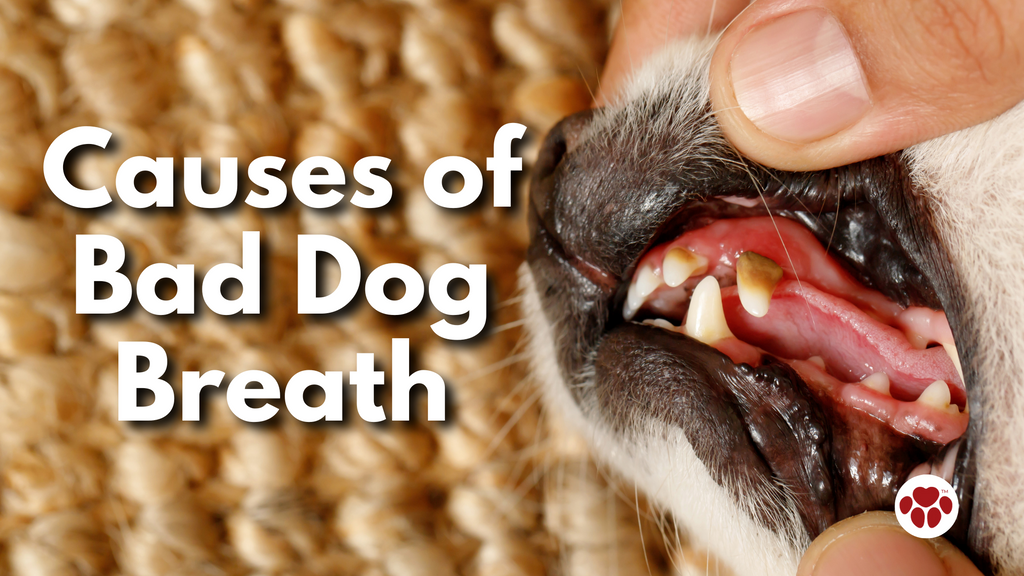
Bad dog breath can be caused by a buildup of bacteria in the mouth, leading to issues such as plaque and periodontal disease (Rawlings and Culham, 1998). It is essential to maintain your dog's oral health to prevent such problems.
When bacteria accumulate in your furry friend's mouth, they can form a sticky film called plaque. If left untreated, this plaque can harden into tartar, causing inflammation of the gums known as periodontal disease.
Your dog's oral hygiene not only affects their breath but can also impact their overall health. Poor oral care can lead to potential health issues such as tooth decay, tooth loss, and even infections that can spread to other parts of the body. Read about "6 Ways To Eliminate Your Dog's Stinky Breath!".
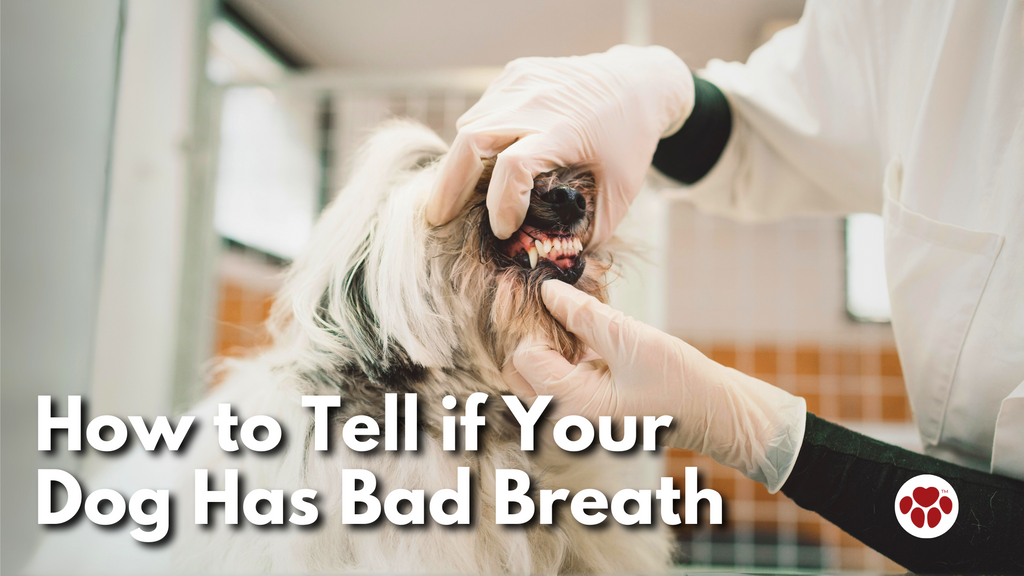
Detecting bad breath in your dog involves observing any foul odors emanating from their mouth or changes in their breath quality. If you notice persistent smelly dog breath, it's advisable to consult a veterinarian.
Bad breath in dogs can be a sign of various underlying issues, such as dental problems, gastrointestinal issues, or even systemic diseases (Hennet, 1992). Regular dental check-ups are vital to maintaining your furry friend's overall health and well-being (Rawlings and Culham, 1998).
Brushing your dog's teeth regularly, providing dental chews like or treats CBD Happy-Furever™ Chews, and feeding a balanced diet can help prevent bad breath. If the bad breath persists despite these measures, it's crucial to seek professional advice from a veterinarian as they can diagnose the root cause and provide appropriate treatment.
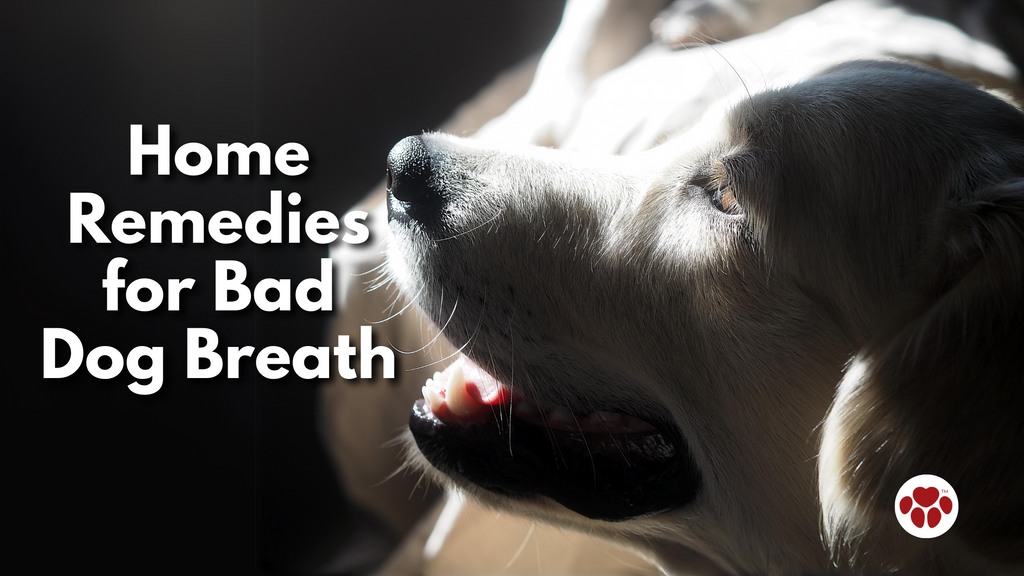
Home remedies can be effective in combating bad dog breath (Lindinger, 2016). From using coconut oil to incorporating apple slices and regular brushing, there are various ways to improve your dog's oral health naturally.
Coconut oil is known for its antibacterial properties (Mohamadi, et al, 2021), which can help eliminate the odor-causing bacteria in your dog's mouth. Simply add a small amount to their food or directly onto their teeth for a freshening effect.
Apple slices are not only a tasty treat for your furry friend but also act as a natural teeth cleaner. (Mojarad, et al, 2021) The crunchy texture of apples can help remove plaque buildup and freshen breath.
Regular brushing is essential to prevent tartar and plaque accumulation (Harvey, Serfilippi, and Barnvos, 2015). Use a dog-specific toothbrush and toothpaste to maintain proper oral hygiene and prevent bad breath.
Regularly brushing your dog's teeth is crucial for preventing plaque and tartar buildup, promoting oral hygiene, and ensuring your dog's dental health (Watanabe, et al, 2015). Make this process as pleasant as possible for your dog to encourage consistent dental care.
Creating a positive brushing experience for your furry friend is key to maintaining their dental health. One helpful tip is to start slowly, allowing your dog to get used to the process. Using dog-friendly toothpaste can make the activity more enjoyable.
Another strategy is to incorporate rewards or treats after each brushing session, reinforcing good behavior. Remember to use a soft-bristled toothbrush specifically designed for dogs, and aim for gentle, circular motions to effectively clean their teeth.
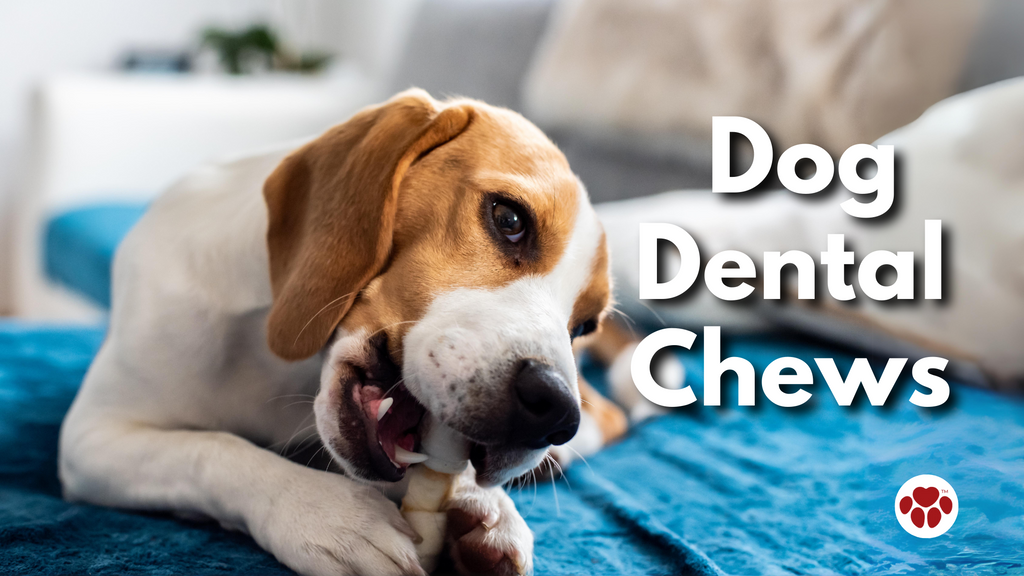
Dental chews or CBD treats can help in cleaning your dog's teeth, reducing plaque buildup, and freshening their breath. These treats not only serve as a tasty snack but also contribute to your dog's oral health.
Dental chews or CBD treats like CBD Happy-Furever™ Chews helps to mechanically clean the teeth, scrubbing away plaque and tartar that can lead to gum disease and bad breath.
The act of chewing increases saliva production, which can naturally rinse the mouth and further assist in reducing bacteria that cause odors.
These benefits make dental chews and CBD treats (Klein, et al, 2018) an easy and enjoyable way to promote better oral health for your beloved pet.
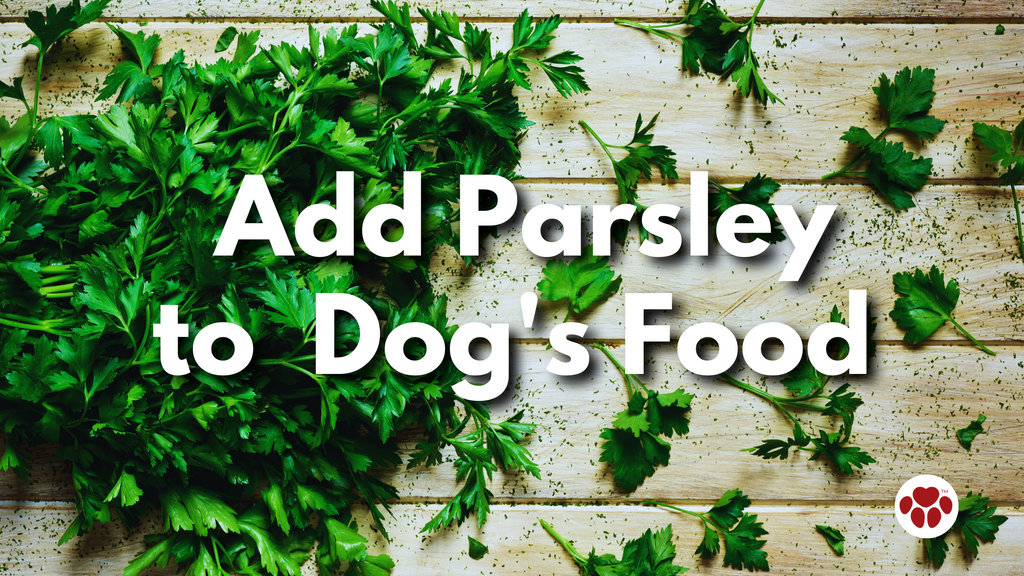
Adding parsley to your dog's food can help freshen their breath naturally. Parsley contains properties that can aid in reducing plaque buildup and promoting overall oral health for your furry companion.
Not only does parsley act as a natural breath freshener, but it also works as a natural way to break down odor-causing compounds in your pet's mouth (Zhang, et al, 2006). By including parsley in your furry friend's meals, you can contribute to maintaining a healthier oral environment and promoting better dental hygiene."
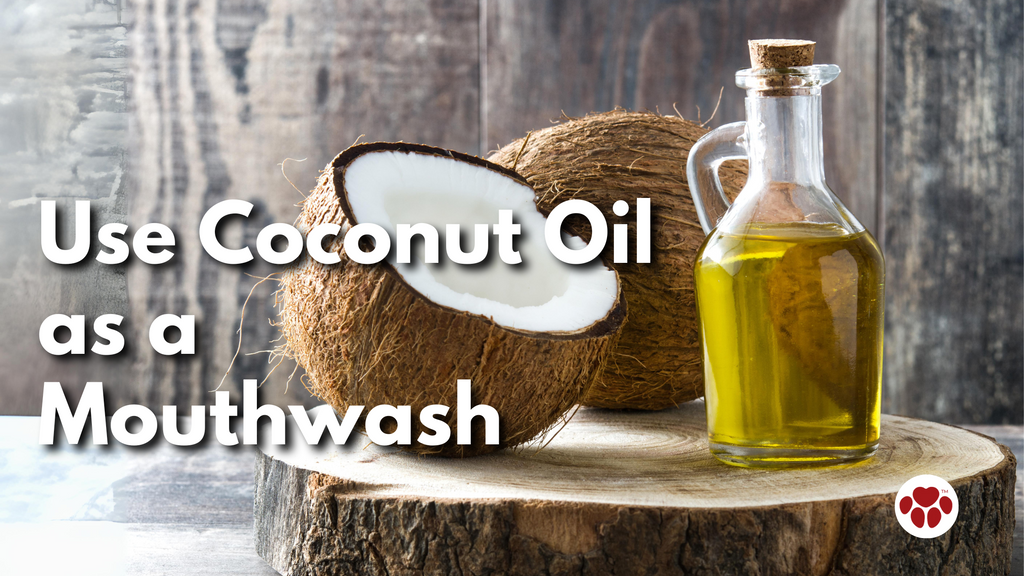
Coconut oil can be used as a natural mouthwash for your dog, promoting oral health and supporting good bacteria in their mouth. Incorporating coconut oil into your dog's routine can help combat bad breath effectively.
Regular use of coconut oil as a mouthwash for your canine companion can also aid in preventing plaque buildup, gingivitis, and other dental issues. The medium-chain fatty acids present in coconut oil possess antimicrobial properties that target harmful bacteria (SU’I, et al, 2021) while leaving the beneficial flora untouched, maintaining a healthy microbial balance in your dog's mouth.
To integrate this into your dog's oral care regimen, you can start by gradually introducing small amounts of melted coconut oil into your dog's daily routine, either by applying it directly to their teeth and gums or by mixing it with their food.
Better yet, give CBD Happy-Furever™ Oil which has 1000mg CBD oil and coconut oil (MCT) as a natural carrier oil. This powerful combination aids in maintaining oral hygiene, among other benefits of CBD Oil. Check out "10 Reasons Why Your Dog Would Embrace CBD Oil's Benefits".
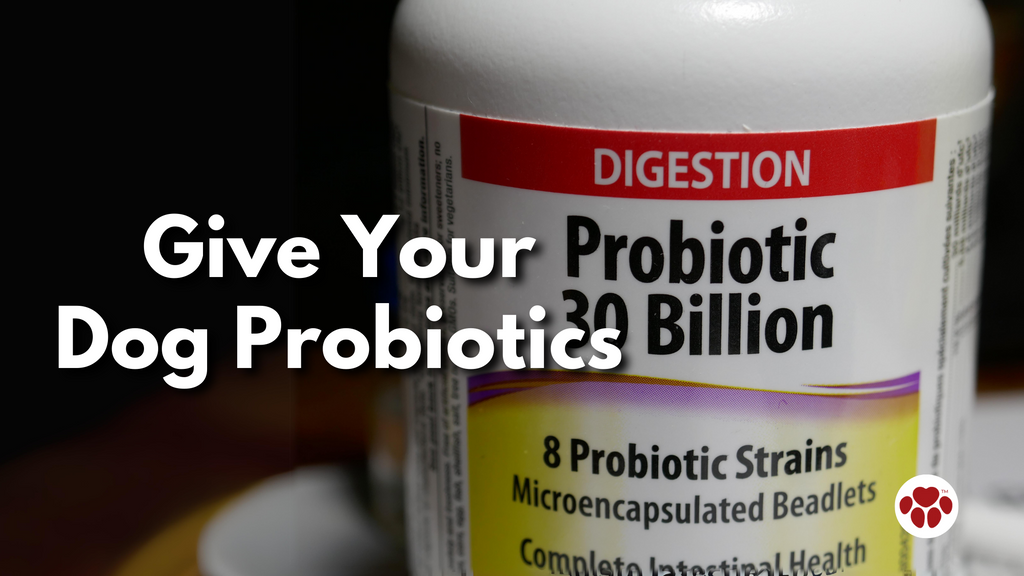
Providing your dog with probiotics can support their oral health by balancing bacteria levels in the mouth and aiding in bad breath prevention (You, et al, 2022). Probiotics are live bacteria and yeasts that are beneficial for overall health, including the oral health of dogs.
By introducing good bacteria into their system, probiotics help in maintaining a healthy balance of microorganisms in their mouth, thus reducing the growth of harmful bacteria that cause plaque and gum disease.
Incorporating probiotics into their daily routine through supplements or probiotic-rich foods can lead to fresher breath and improved oral hygiene for your dog.
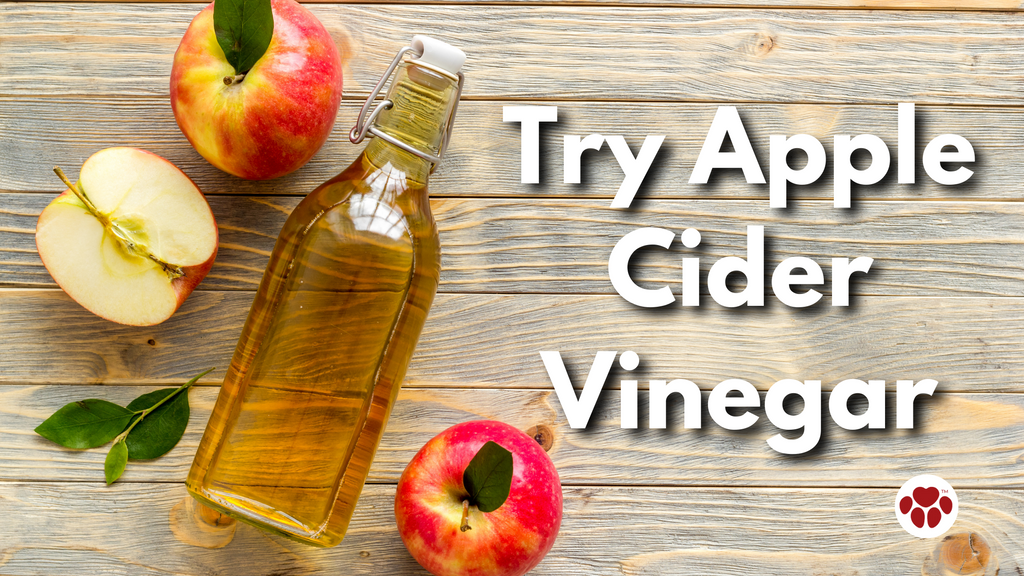
Apple cider vinegar is a natural remedy that can help freshen your dog's breath and contribute to their oral health (Wills and Forbes, 1939). The properties of apple cider vinegar can aid in reducing plaque and promoting a healthier mouth for your pet.
Apple cider vinegar contains acetic acid, which has antibacterial properties helping to combat harmful bacteria in your furry friend's mouth. This can lead to fresher breath and a decreased risk of dental issues like gum disease and tooth decay (Asaad and Laflouf, 2022).
Regular use of apple cider vinegar in your dog's oral care routine may also help in balancing the pH levels in their mouth, creating an environment less conducive to the growth of bacteria that cause bad breath.

Incorporating fresh fruits and vegetables into your dog's diet can help in maintaining their oral health (Pavia, et al, 2006) and preventing bad breath. These natural foods provide essential nutrients and promote dental hygiene for your furry friend.
For example, crunchy fruits and vegetables like apples, carrots, and celery can help clean your puppy's teeth naturally, reducing plaque buildup and freshening their breath. In addition, fruits such as berries and watermelon are rich in antioxidants that improve their immune system including keeping healthy gums (Wang, Cao, and Prior, 1996).
Leafy greens like spinach and kale are excellent sources of vitamins and minerals (Gupta, et al, 2005) that support overall dental health for your canine companion.
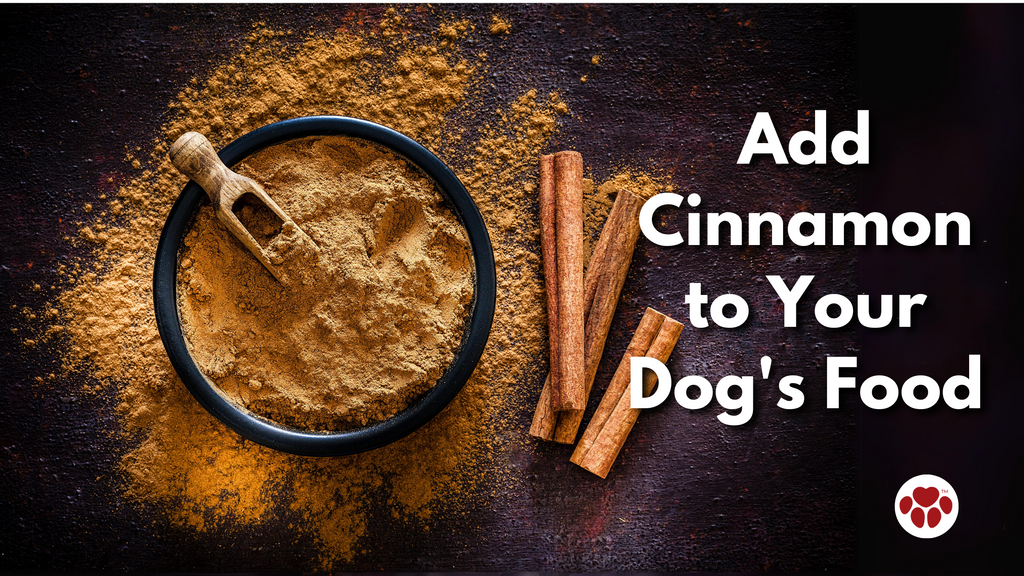
Including cinnamon in your dog's food can contribute to fresher breath and improved oral health (Yanakiev, 2020). Cinnamon has natural properties that can help combat plaque and tartar buildup, enhancing your dog's dental hygiene.
The wonderful thing about cinnamon is that not only does it act as a natural breath freshener, but it also possesses antibacterial properties (Jeong, et al, 2021) that can assist in reducing harmful bacteria in your dog's mouth.
By incorporating cinnamon into your pup's diet, you are not only promoting better oral health but also boosting their overall well-being. Check "4 Ways CBD Can Help Improve Your Dog's Health Within Days!".
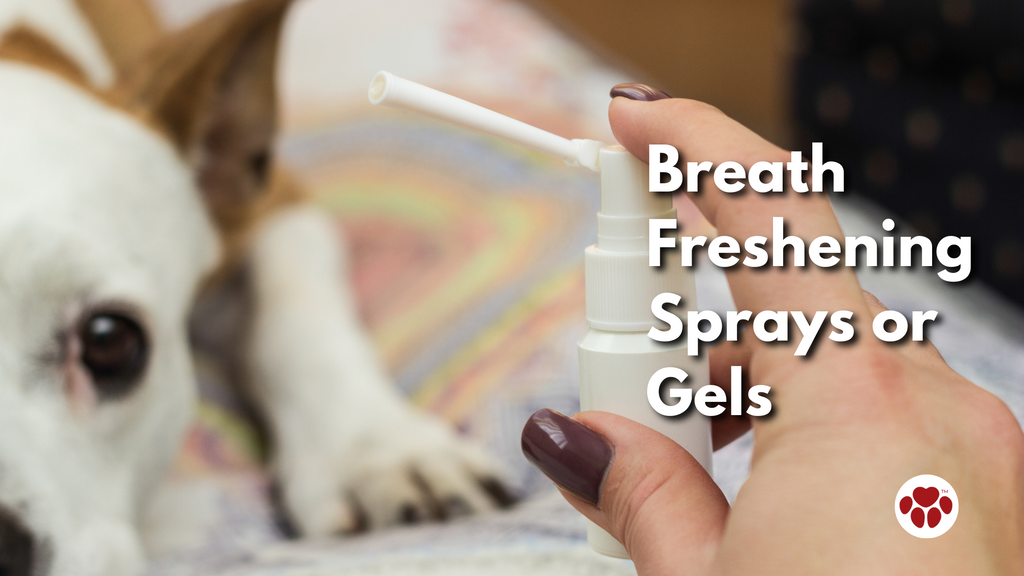
Breath freshening sprays or gels can be a convenient way to maintain your dog's oral health and combat unpleasant breath. These products are designed to freshen your dog's breath without causing discomfort.
Using breath freshening sprays or gels regularly can help prevent the buildup of plaque and tartar in your dog's mouth (Andrade, et al, 2019), reducing the risk of dental issues such as gum disease and tooth decay. These products often contain enzymes that aid in breaking down bacteria, promoting overall oral hygiene.
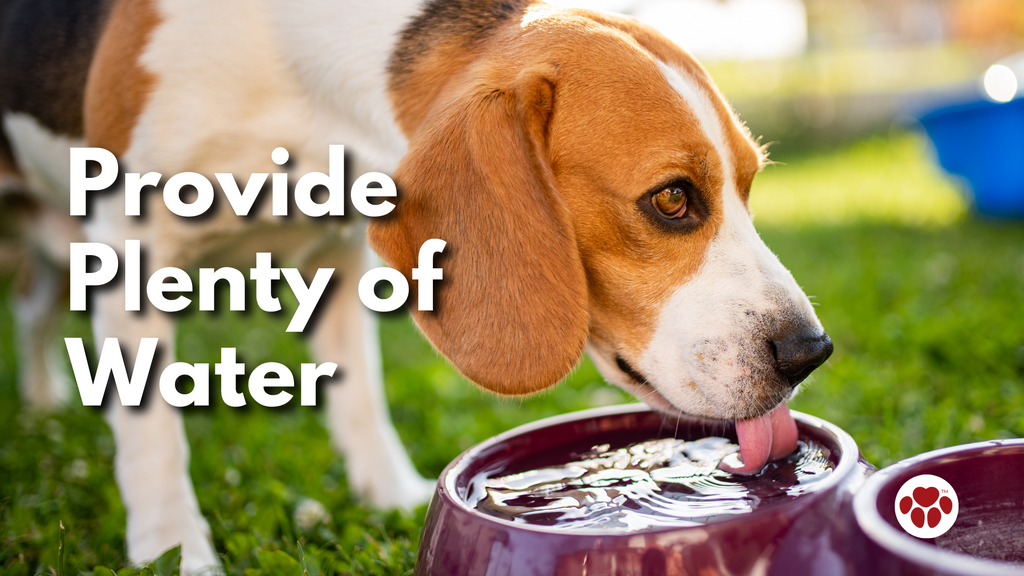
Ensuring your dog has access to plenty of water is essential for their overall health and oral hygiene. Adequate hydration can help prevent bad breath and promote a healthy mouth (Jameson, Hood, and Tidmarsh, 1993). Moreover, proper hydration plays a crucial role in supporting various bodily functions in dogs.
Not only does it aid in digestion and nutrient absorption, but it also helps regulate body temperature and maintain energy levels. Water serves as a natural cleansing agent, flushing out toxins and bacteria from your dog's mouth, reducing the risk of dental issues.
Fresh and clean water should always be available, especially after meals and physical activity. Consider adding flavorless broth or wet food to boost their water intake (Zanghi, et al, 2018).
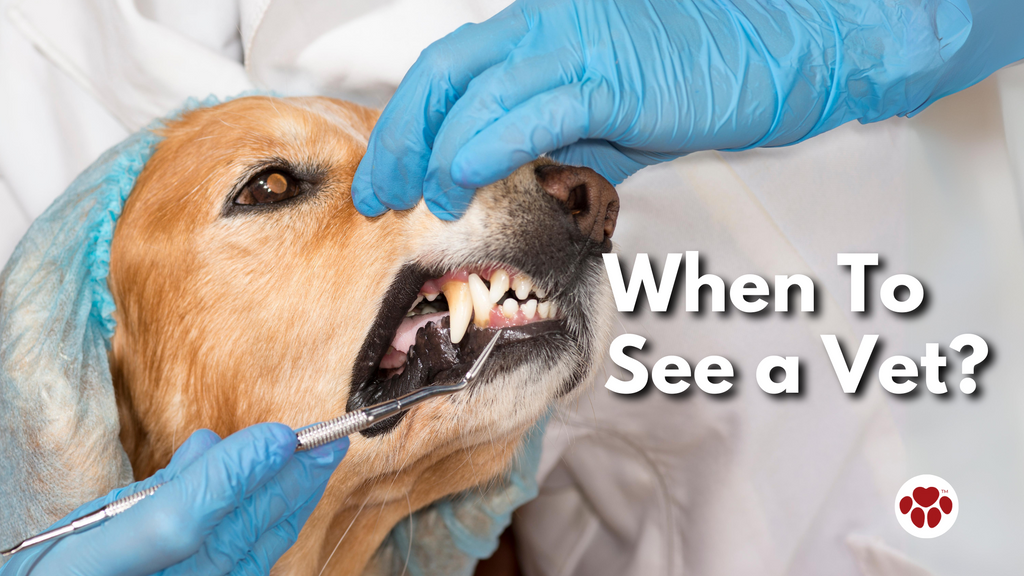
It is advisable to consult a veterinarian if you notice persistent bad breath in your dog, as it could be indicative of underlying health issues or dental problems. A veterinarian can provide guidance and recommend suitable oral health products for your pet.
While bad breath in dogs can sometimes be attributed to diet or lack of proper dental care, it can also signal more serious issues such as gum disease, infections, or even systemic diseases affecting your dog's overall health.
Seeking veterinary advice is crucial as veterinarians are trained to identify the root cause of the bad breath and provide appropriate treatment. They may conduct thorough oral examinations, recommend specialized dental cleanings, or suggest necessary blood tests to assess your dog's internal health.
By addressing oral health problems early with professional guidance, you can ensure your dog's wellbeing and prevent potential complications.
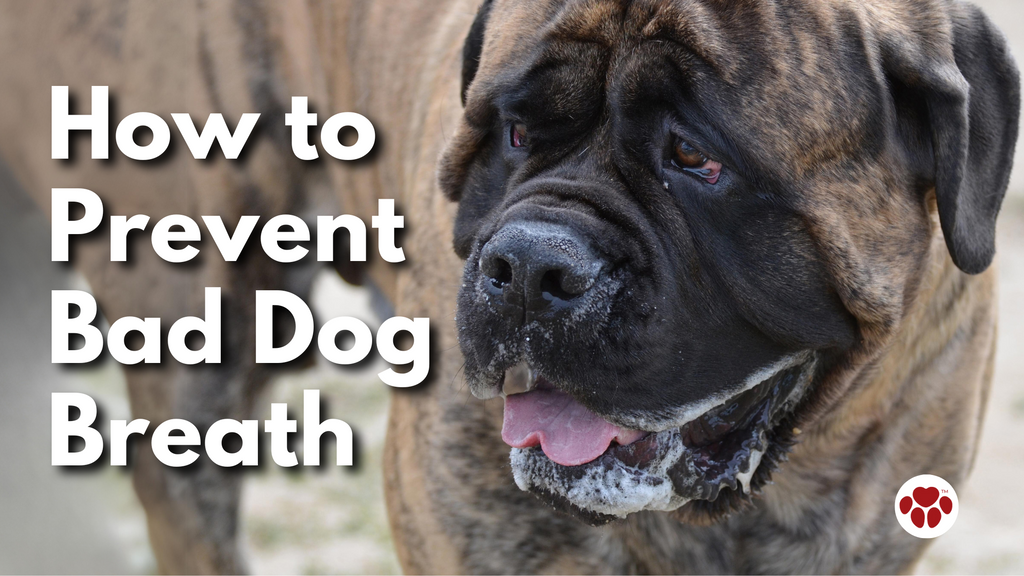
Preventing bad dog breath involves incorporating good dental care practices and utilizing home remedies to maintain your furry friend's oral hygiene. By focusing on preventive care, you can help your canine companion avoid the discomfort of bad breath.
Regular brushing of your dog's teeth with a dog-specific toothbrush and toothpaste is crucial in preventing plaque and tartar buildup. Offering dental chews or toys designed to promote oral health can help keep your dog's teeth clean.
Ensuring a balanced diet rich in nutrients and avoiding excessive table scraps can also contribute to fresher breath for your pup. Remember to schedule regular check-ups with your veterinarian for professional dental prophylaxis and to address any underlying issues that may be causing bad breath.
By following these steps, you can promote good oral health in your furry companion and prevent the onset of unpleasant odors.
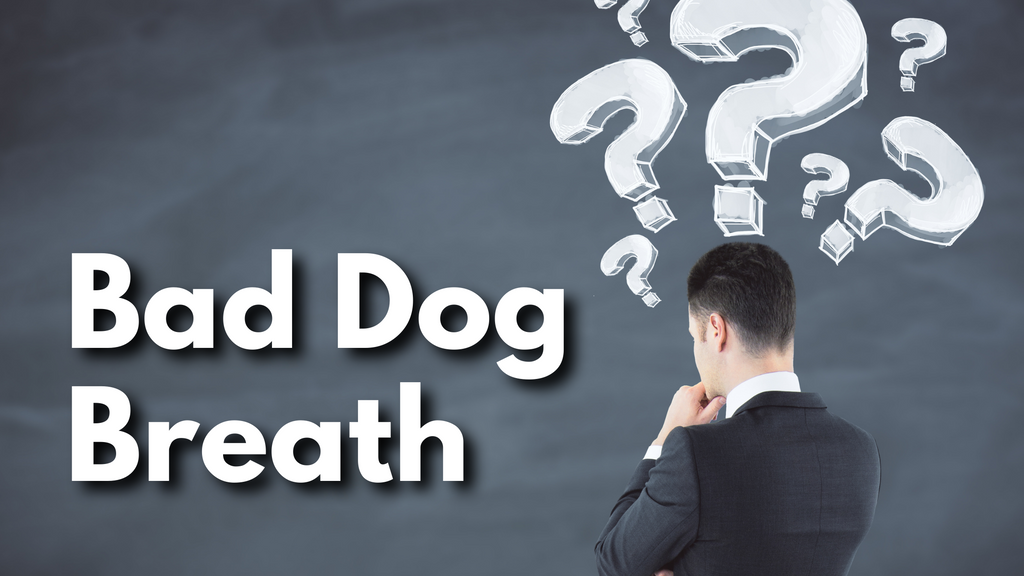
Yes, there are several home remedies that can effectively freshen your dog's breath and improve their oral health.
Bad dog breath can be caused by a variety of factors including poor oral hygiene, dental disease, diet, and gastrointestinal problems.
Some natural remedies for bad dog breath include adding parsley to their food, giving them coconut oil to ingest, and brushing their teeth with a homemade toothpaste.
Bad dog breath may be a sign of underlying health issues such as dental disease or digestive problems. It can also be unpleasant for both you and your dog.
Some ways to improve your dog's oral hygiene at home include regular teeth brushing, providing chew toys and treats that promote dental health, and adding supplements to their diet.
Yes, crunchy fruits and vegetables like apples and carrots can help scrape plaque off your dog's teeth and freshen their breath. You can also try adding a small amount of probiotic yogurt to their meals.
